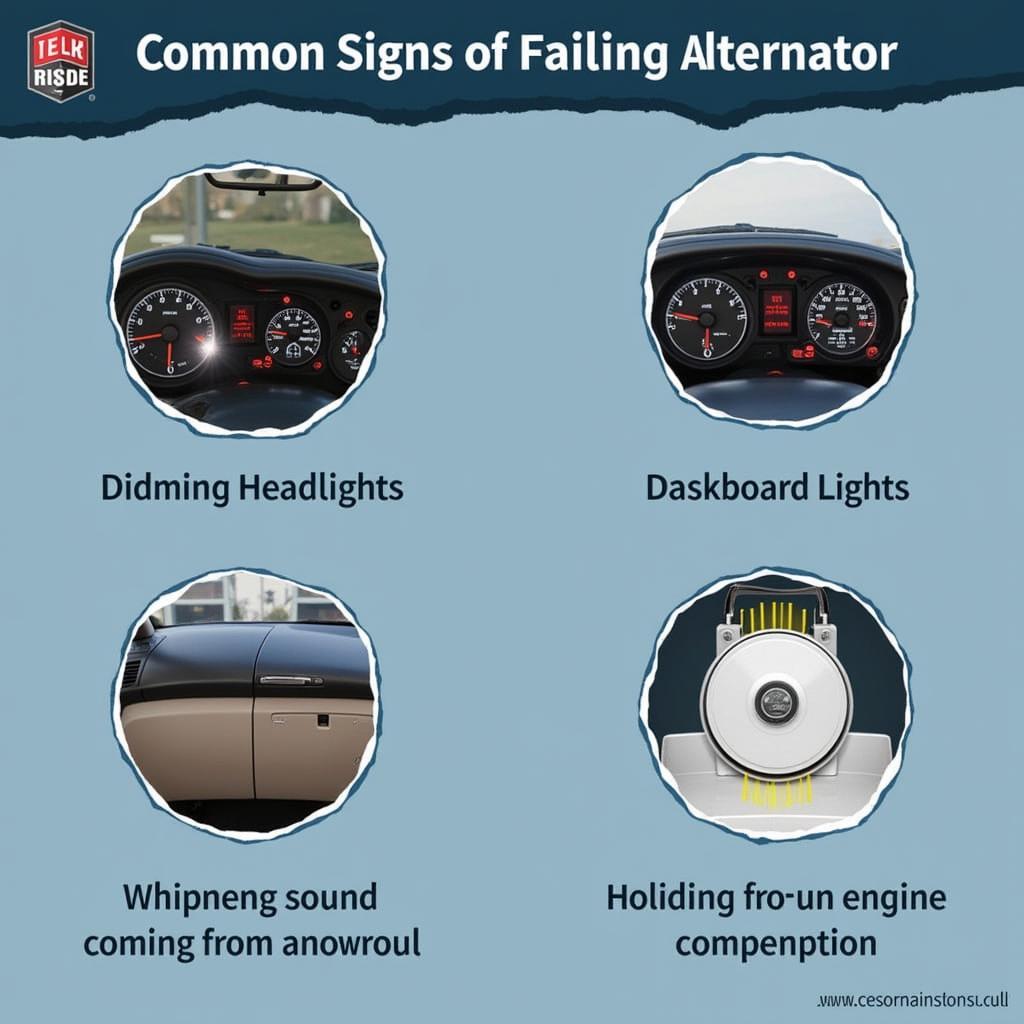A dead car battery is frustrating, especially when it happens repeatedly. If your car battery keeps dying after a few days, it indicates an underlying issue that needs addressing. This article dives into the common causes and provides practical solutions, empowering you to tackle this problem head-on. We’ll explore everything from parasitic drains to faulty alternators and offer expert advice on diagnosing and fixing the issue.
One of the most common culprits for a repeatedly dying battery is a parasitic drain. This occurs when an electrical component continues to draw power even after the car is turned off. Identifying these drains can be tricky. Sometimes, it’s as simple as a light left on in the trunk or a faulty door switch. However, more complex drains might involve the radio, alarm system, or even a malfunctioning ECU. A simple test using a multimeter can help pinpoint the source of the drain.
how to change battery in lexus key fob
Why Does My Car Battery Keep Dying After a Few Days?
Several factors can contribute to a car battery constantly needing a jump. Understanding these potential causes is crucial for effective troubleshooting.
Common Culprits Behind a Dying Car Battery
- Parasitic Drains: As mentioned, these are sneaky power consumers that operate even when the car is off.
- Faulty Alternator: The alternator recharges the battery while the engine is running. A malfunctioning alternator won’t charge the battery properly, leading to its eventual demise.
- Old or Damaged Battery: Batteries have a limited lifespan. Over time, their ability to hold a charge diminishes. Physical damage can also shorten a battery’s life.
- Extreme Temperatures: Both extreme heat and cold can negatively impact battery performance.
- Short Trips: Short drives don’t allow the alternator sufficient time to fully recharge the battery, especially after starting the engine, which draws a significant amount of power.
- Corroded Battery Terminals: Corrosion can impede the flow of current to and from the battery, leading to charging problems.
 Faulty Alternator Symptoms
Faulty Alternator Symptoms
How to Diagnose a Car Battery Problem
Diagnosing a dying battery involves several steps.
Testing Your Car Battery and Alternator
- Visual Inspection: Check the battery for any signs of physical damage or corrosion.
- Voltage Test: Use a multimeter to check the battery voltage. A fully charged battery should read around 12.6 volts.
- Alternator Test: With the engine running, the voltage should increase to around 14 volts, indicating a functioning alternator.
- Parasitic Drain Test: With the car off and all accessories turned off, connect a multimeter in series with the battery negative cable to measure the current draw. A high reading indicates a parasitic drain.
how to open key fob to change battery
Solutions for a Dying Car Battery
Once you’ve diagnosed the problem, implement the appropriate solution.
Fixing a Dying Car Battery: Step-by-Step Guide
- Clean Battery Terminals: Remove corrosion using a wire brush and a baking soda and water solution.
- Replace the Battery: If the battery is old or damaged, replacement is the best option.
- Repair or Replace the Alternator: A faulty alternator needs professional attention.
- Identify and Eliminate Parasitic Drains: This may involve checking fuses, relays, and electrical components.
- Limit Short Trips: If possible, combine short trips or allow the car to run for a longer period occasionally to fully charge the battery.
how to.change the battery in a key fob
“Regular maintenance, such as checking battery terminals and ensuring proper alternator function, is key to preventing future battery issues,” advises John Smith, Automotive Electrical Engineer at AutoTech Solutions. “A simple voltage check can save you a lot of hassle down the road.”
how to change battery in nissan rogue key fob
“Many people overlook the impact of extreme temperatures on battery performance,” adds Jane Doe, Senior Technician at Advanced Auto Repair. “Protecting your battery from excessive heat and cold can significantly extend its lifespan.”
In conclusion, if your car battery keeps dying after a few days, it’s essential to diagnose the root cause and take appropriate action. By following the troubleshooting tips and solutions provided in this article, you can resolve the issue and prevent future battery problems.
FAQ
-
How long should a car battery last? Typically, car batteries last between 3 and 5 years.
-
Can I jump-start my car every day? While possible, jump-starting daily indicates a serious underlying problem and can damage the car’s electrical system.
-
What is a parasitic drain test? This test helps identify electrical components that are drawing power even when the car is off.
-
How often should I check my battery terminals? It’s good practice to check your battery terminals for corrosion every few months, especially during extreme weather conditions.
-
Is it difficult to replace a car battery myself? Replacing a car battery is relatively simple, but if unsure, consult a professional.
-
How can I tell if my alternator is bad? Signs of a bad alternator include dimming headlights, flickering dashboard lights, and a whining sound from the engine.
-
Can a bad battery damage my car? Yes, a failing battery can put a strain on the alternator and other electrical components.
